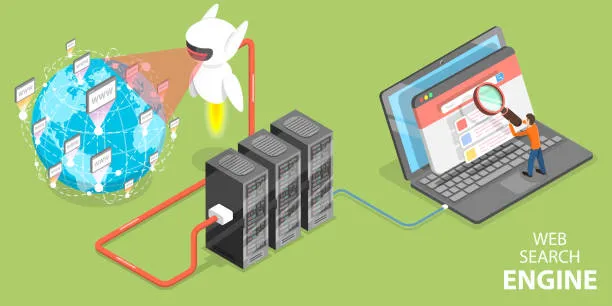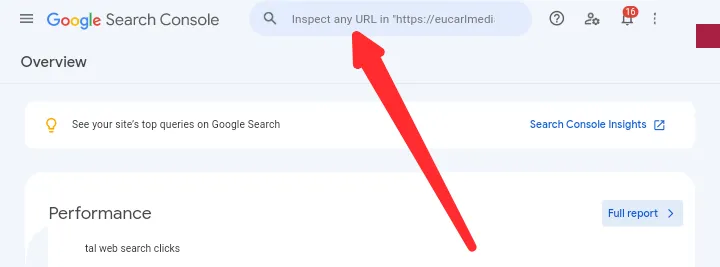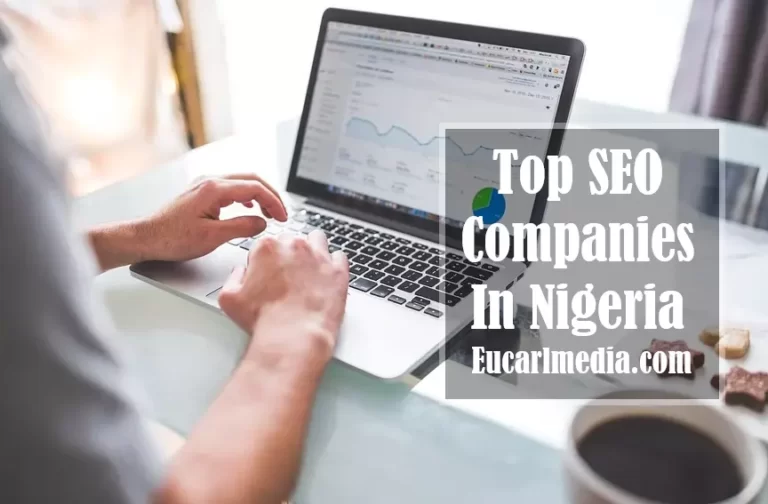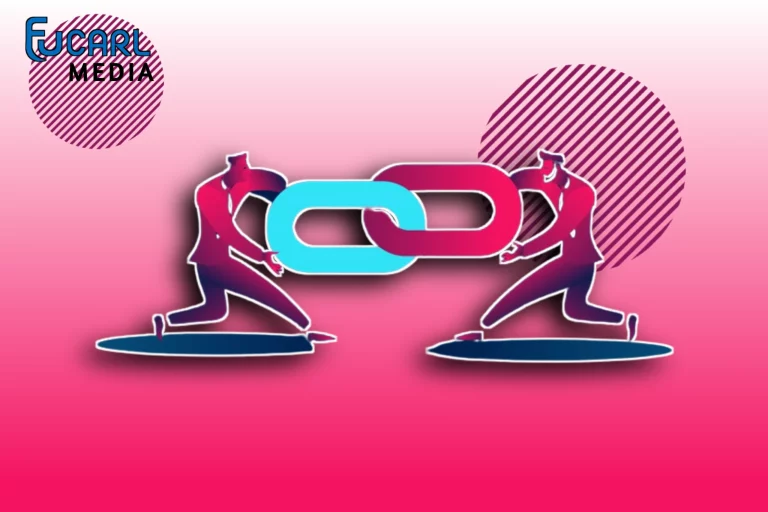What Is indexing? Why Is It Important In SEO?
Take a look at the following question: What happens to a web page after it has been crawled by search engines? This is where indexing comes in since it is very crucial in search engine optimization.
This is, without a doubt, going to be the central focus of our conversation in the following paragraphs. In this section, we’ll look at how search engines index and save the information on a page.
These search engines will be able to produce useful information from the page that has been indexed thanks to this procedure, which makes it one of the most significant processes for these search engines.
Now, without further ado, let’s give a more in-depth response to the question, “What is indexing?” “Why is it important in SEO?” We will also talk about alternative indexing in SEO terms.
What Is Indexing?
This is the process that Google bot crawlers go through to save, categorize, and process the content and web pages that they encounter on the Internet, preparing them to be shown in search engine results pages (SERPs).
You may also pose this question in place of “what is indexing in SEO?” In this sense, it is a reference to the process by which search engines crawl and index pages in order to improve the effectiveness of SEO.
This search engine optimization (SEO) indexing method involves sorting and categorizing results based on a set of criteria. One example is giving keywords to a website page based on the information on that website page.
Then, the index is made using the page’s listed category and the keyword which has been assigned to them. This makes it possible for the website page to show up on SERPs when the keywords are looked up.
Your organic click-through rate (CTR) will increase as a result of this since having an optimized set of index pages on your website will ensure that your content is always displayed in search engine results pages.
After thoroughly addressing the question “What is indexing?” we may move on to investigating other aspects of indexing in SEO, such as the various types of indexing that are used in SEO and the significance of each.
Other Forms Of Indexing In SEO

In this section, we’ll talk about some of the most important types of indexing in SEO. We’ll start with an inverted index and end with the cached version of a website that has been indexed.
What Is An Inverted Index?
Crawling and indexing websites may now be done in a more efficient method through inverted index mode. An index will always be created by summarising and compiling the important data that can be found on these pages.
In other words, an inverted index is a method by which search engines display only the set of terms that have been compiled from other data and are known to be the most important.
These search engines use a process called “tokenization” to cut down on the number of individual terms detected on a web page. In terms of indexing in SEO, this “indexing mode” is believed to be simpler for Google to perform.
The Cached Version Of A Page
This also provides a solution to the question, “what is indexing?” However, in this scenario, search engines only save the text-based material that is compressed into a web page along with the information that is referred to as “metadata.”
This cached version of a web page may also be referred to as the most recent snapshot of a page that the search engines have crawled and are preparing to index. This terminology may be used interchangeably.
By clicking the tiny green arrow that was next to the URL of each search result, it was easy to quickly get the indexing that was saved in the cached version of these pages.
Significant Of Indexing By Search Engines
Previously, during the early days of the internet and before search engines like Google came along, people had to look through long directories to find the information they needed.
That procedure caused a great deal of anxiety. However, with the development of search engines and indexing in SEO, SERPs are now able to process proper information more quickly and with less difficulty.
This approach has also improved the degree of search engine optimization (SEO), allowing customers to receive rapid replies from search engines, while at the same time strengthening the level of SEO.
All of these were made feasible as a result of the accurate indexing that was used throughout the SEO implementation of search engines. As a result, the significance of indexing in SEO cannot be emphasized enough.
Significance Of Content Indexing On The Internet
This is a subheading on the significance of indexing in search engine optimization. When indexing content, many different methods are used, all of which are based on real-world evidence.
This method, on the other hand, can be somewhat confusing. But you will comprehend it since we were able to answer the question “What is indexing?” and understand other fundamental components of it.
In search engine optimization (SEO), content indexing is completed when search engine crawlers traverse the Internet in order to add web content to the index of the respective search engine.
On the other hand, the content needs to be arranged and classified in accordance with the type of information. This is done by the algorithm that controls the Internet so that people can get accurate search results.
Read Also: SmallSEOTools – Quick Review And How To Use It Right
How Can You Influence Indexing In SEO?

In addition to the inquiry “what is indexing?” Another important point that has to be addressed is the following: Is it possible to exert some kind of control over the indexing process in SEO in order to produce more accurate search results?
The correct response is “yes.” You have some say in how Google indexes things. But what steps should I take to do this? In the case of a brand-new website, you may provide the search engines with suggestions for how to index your site.
Users of Google and the Search Engine Console can influence how their SEO pages are indexed by using the URL Inspection Tool, which is part of the Search Console.
So, changing the rate at which your web pages are indexed is a smart way to get more traffic, and it’s also another way to make your search engine marketing for your website work better.
Importance Of Indexing In SEO
When it comes to search engine optimization, indexing is a very significant factor to consider. Because of this, knowing how important it is will give you the knowledge you need to move forward with it.
To begin, we might tell you that indexing is very crucial in Internet searches since the search engine needs to first index all of the websites that you want to visit. This is because the search engine needs to be able to find those websites.
Indexing is also an important part of search engine optimization (SEO) because it makes sure that your website shows up in search engine results pages when someone searches for keywords related to your website on the internet.
In addition to this, it plays an important part in ensuring that the on-page, off-page, and technical SEO work done on a website is optimized to its full potential. The visibility of the website will increase as a result of this.
You might also check how well your site is indexed for SEO by using SEO ranking goosuggest.com, which offers an SEO rating service. It is a tool made especially for index checking.
How Can You Optimise Your Website For Indexing?
It is imperative that you adhere to the recommended practices that have been outlined below regarding how to optimize your website for indexing. Because of this, search engines will have a much simpler time crawling and indexing your website.
1. Check Your Indexing Issues Using Google Search Console
Using this method, you may determine with a high degree of accuracy whether or not your page is being indexed. The realization of this fact will prompt you to take prompt action in order to index the required pages.
2. Create And Submit Your Sitemap
This practice will ensure that crawlers will identify and crawl the specific page that you intend to index, while also ensuring that they will avoid the pages that you do not want to be crawled. Consequently, it is essential that you send in your site map.
3. Block Web Pages You Don’t Want The Web Spiders To Index
By preventing the low-quality Web page from being indexed by crawlers, you can increase the likelihood of indexing other pages that are important. It is also possible to perform a 301 redirect to these pages.
4. Always Use Internal Links
When it comes to indexing in SEO, having a robust network of internal links will help increase the rate at which your pages are indexed. You could hire an SEO expert to help you with it if you are unable to create a quality internal link on your own.
5. Be Proactive

This indicates that you should occasionally force search engines to detect and index your site by entering the URL of the page you want to index into the search engine console and then pressing the “Fetch” button. In doing so, you will prompt the search engines to index your site.
Read Also: What Is Pay-per-click? The Best Guide To PPC Marketing
What Is Indexing? Final Notes!
After going over all of the essential information that you need to know about indexing in SEO, the following are some important key takeaways that you need to know based on crawling and page indexing.
- Google and other search engines do not index every web page or everything they find on the Internet.
- A website that has been optimized for search engine optimization (SEO) is one that is simple for search engines to find, crawl, and index.
- It is common knowledge that search engines are able to easily index websites that deal in E-commerce.
- You should be aware that search engines will be picky about the pages they index due to the high level of competition that is driving the rapid development of the Internet.
- On the other hand, you shouldn’t make it your goal to have each and every page of your website indexed.
- By glancing at the results of other pages, search engines like Google and others can form an opinion on a page without ever crawling the page themselves.
Having said that, you might take things a step further to increase the indexing in SEO rate at which your website is being crawled and analyzed for search by familiarising yourself with the Google SEO Webmaster Guidelines.

![7 Core Elements Of SEO Inbound Marketing Strategy ([year]) Core Elements Of SEO Inbound Marketing Strategy](https://eucarlmedia.com/wp-content/uploads/2023/09/20230901_190954-768x512.webp)
![What Is Negative SEO? [+5 Ways To Protect Your Site From It] What Is Negative SEO? How To Protect Your Site From It](https://eucarlmedia.com/wp-content/uploads/2023/08/20230801_105151-768x512.webp)



